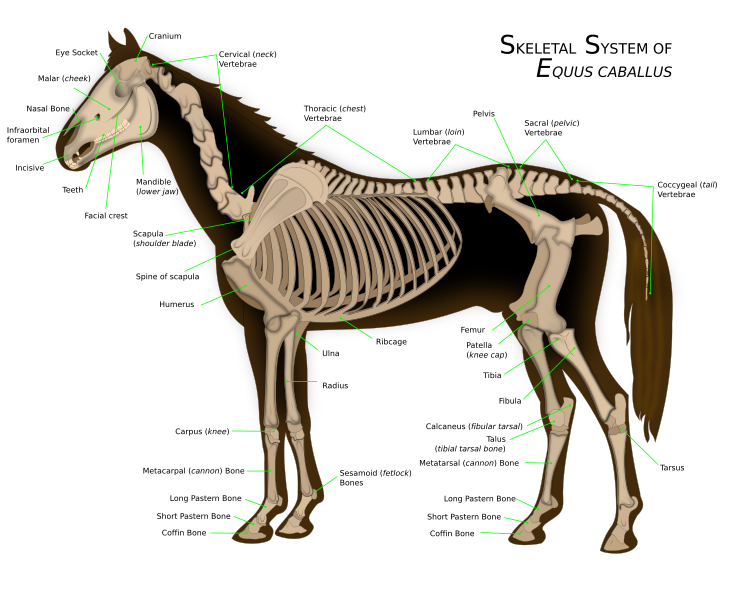The horse is a domesticated hoofed animal belonging to the subspecies Equus ferus caballus, part of the odd-toed ungulate order of mammals. Having been domesticated since at least 4000 to 3500 BC, horses now interact with humans in a wide variety of sporting competitions and non-competitive recreational pursuits, as well as in working activities such as police work, agriculture, entertainment, and therapy. Horses were historically used in warfare.
This picture shows a diagram of the skeletal system of the horse, which has an average of 205 bones. A significant difference between the horse skeleton and that of a human is the lack of a collarbone – the horse's forelimbs are attached to the spinal column by a powerful set of muscles, tendons, and ligaments that attach the shoulder blade to the torso. The horse's leg bones are also proportioned differently from those of a human. The lower leg bones of a horse correspond to the bones of the human hand or foot. A horse has no muscles in its legs below the knees and hocks, only skin, hair, bone, tendons, ligaments, cartilage, and the assorted specialized tissues that make up the hoof.Diagram credit: Wilfredo Rodríguez
